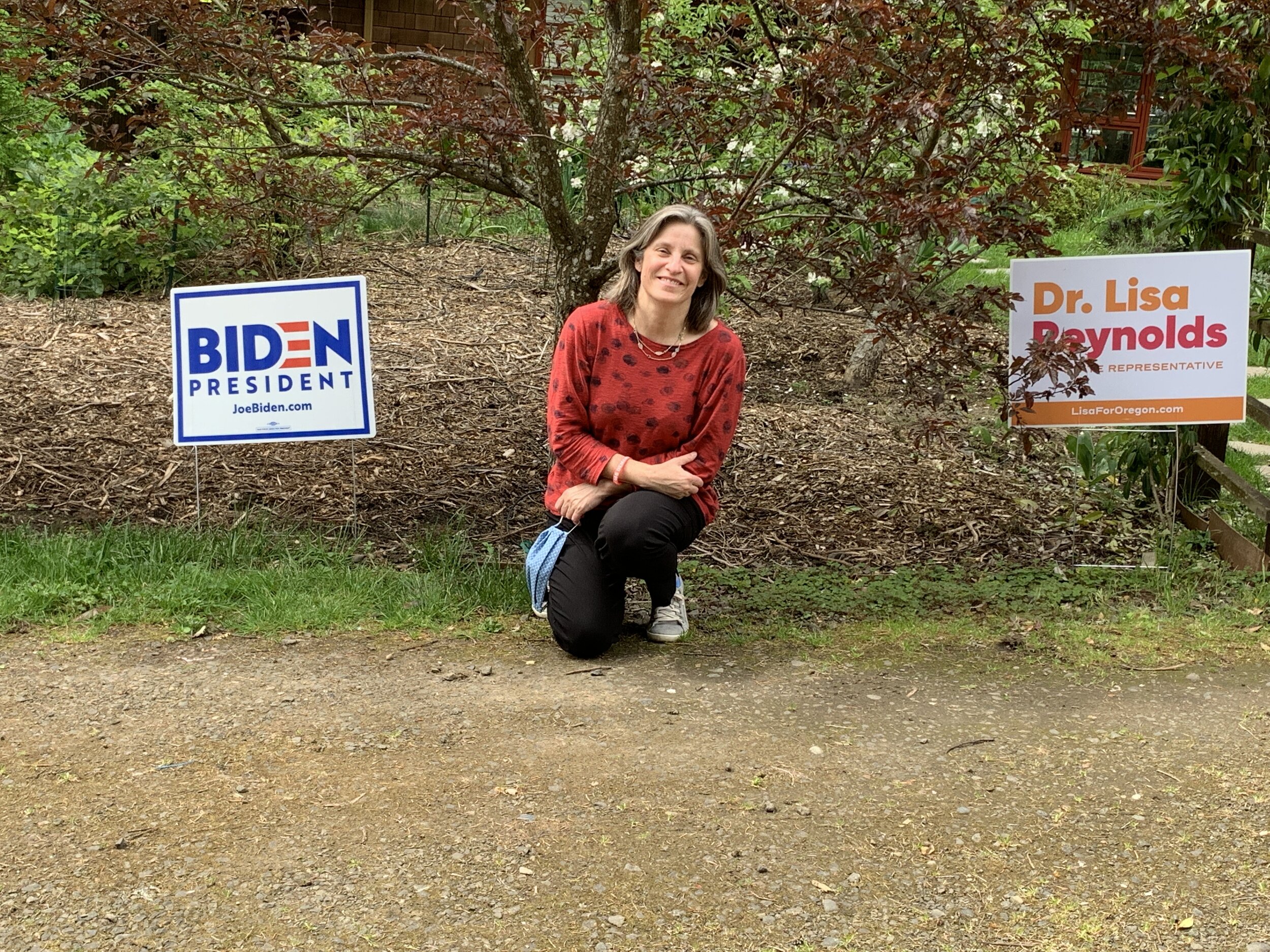
Lisa fights for all Oregonians.
From a pediatric exam room, Dr. Lisa Reynolds sees – up close – the impact of mental illness, poverty, and inequity on children, teens, and their families. These impacts have only been exacerbated by the COVID pandemic. She works every day to improve the health of her patients in the clinic and on the floor of the Oregon statehouse.
Lisa understands that the health of her patients and our community is less about healthcare and more about the social determinants of health, including access to stable housing, adequate food, clean air and water, quality childcare, and excellent education. Toward that end, Lisa has called for a 50% reduction of child poverty over the next 4 years.
Lisa’s speech on the Oregon House floor calling for the Child Tax Credit, which reduces child poverty.
“I’m running for re-election because I know the families of Washington County and I am just getting started tackling the issues I care most about - poverty, gun violence, houselessness, mental health and medical care, and climate change.”
“If you re-elect me, you will get an activist who will treat these issues as the emergencies that they are. You’ll get a pediatrician who sees, every day, how state policy affects our kids and families.”
“When you vote for me, you’ll get a politician who acts like a mom.”
The Example That Shaped My Life
I
was raised in suburban Chicago in the 1970s in a working-class family, the daughter of a roofer and a housewife. My mom, Phyllis, was a maverick. She took me to Equal Rights Amendment marches, subscribed to Ms. Magazine, and brought us to nearby migrant farmworker camps to drop off blankets and clothes. Even though she didn’t have her degree, my mom talked about college for all of us. And then she returned to school, graduating from college at the age of 40.
Mom taught us kids to live a life of action and of service. If you needed an education, you got it. If you wanted your rights, you fought for them. If someone needed help, you gave it to them. She inspires me still.
Lisa’s Family (Dad Charlie, Mom Phyllis, Pat, Lisa, Sarah, and Chris)
“Everything’s fine.”
My brother Pat, at 22, had a psychotic breakdown and was hospitalized when I was in college. We learned, over time, that he suffers from schizophrenia. We all hoped he would be OK, that he’d feel better and go back to college and play guitar again and have a family. Instead, Pat, like many people with mental illness, has struggled. Sometimes he might disappear or stop taking his medication and wind up in the hospital. We still start our voicemail messages with a sing-song “everything’s fine” because we’ve had so many calls when things are not fine.
When Pat needed help – a suicide attempt, an appointment with a doctor, a call from a nursing home – we gave it to him. I want to make sure everyone with mental illness, or any illness, has the kind of care that Pat gets.
That Was a Good Day
When I was in medical school in Los Angeles, a group of us medical students saw the need for health care among the homeless. We started a clinic in a transitional housing shelter. One day at the clinic, Mrs. Gonzales came to me and said: “Lisa, I’ve lost my glasses and I can’t read my Bible. Will you help me?” I walked right into the famous Jules Stein Eye Institute at UCLA and persuaded them to provide free eye exams and glasses to shelter residents. That was a good day.
When I was studying medicine, I wanted to learn Spanish to better take care of my patients. So I took a crash language course in Guatemala and a clinical rotation in Nicaragua. I’m glad I did. Today, I speak Spanish with about 20 percent of my patients.



